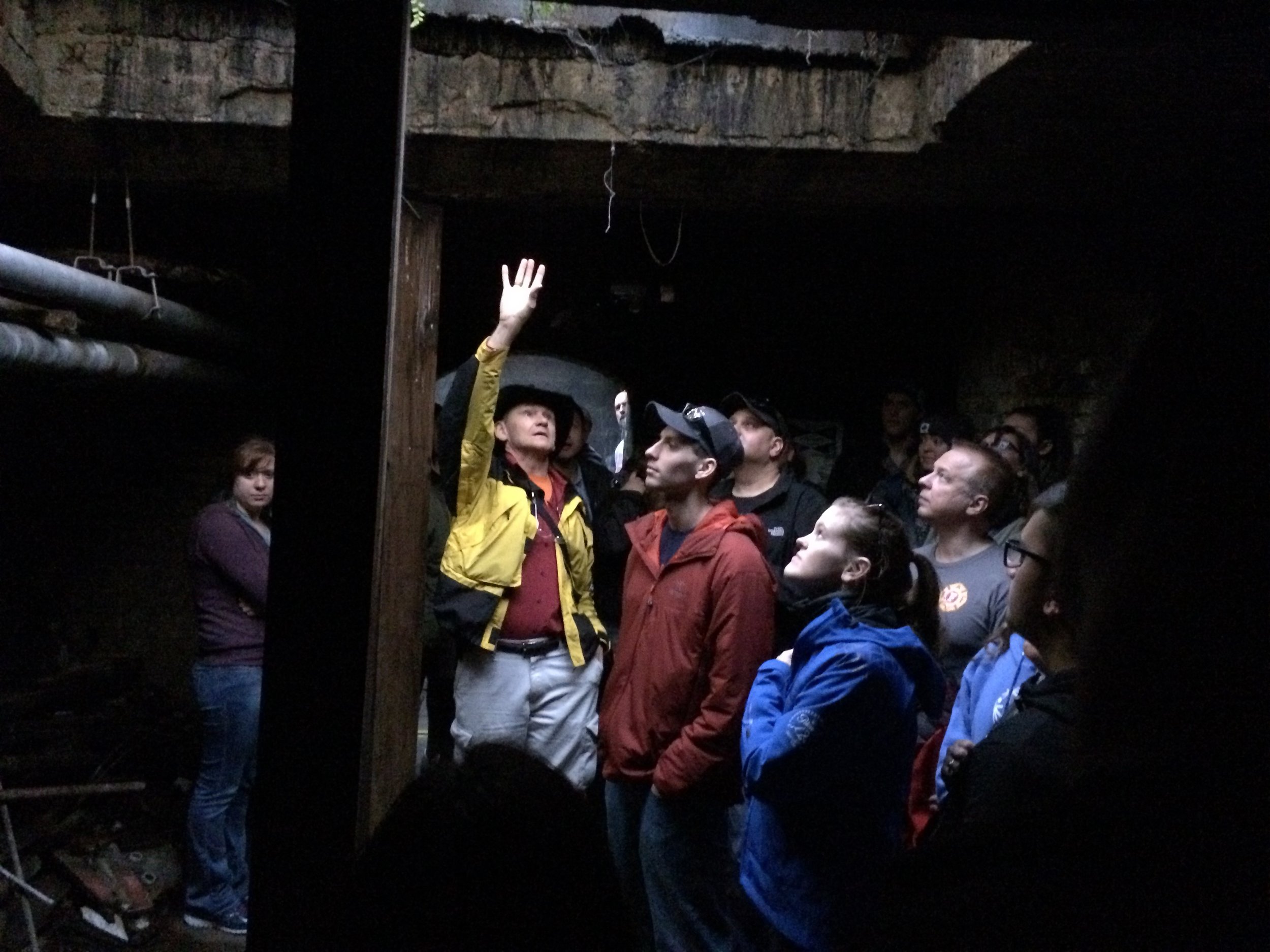You’re going to be wrong. It’s going to happen. Again and again. It’s fine. We all do it all the time. We just notice something is off, question how we want to change, and move on. That’s what human beings do. We might kick and scream quite a bit, but we are generally pretty good at making the changes.
Think about it. Back when your grandmother was born, doctors smoked cigarettes in babies’ faces. People threw garbage out their car windows. Houses were packed with asbestos. Women stayed home and stayed in the kitchen. Gay people had to stay firmly in the closet and not touch anything. Black and white folks were segregated in schools, restaurants, restrooms, and by water fountains. And there were water fountains!
Life changes because we realize and agree we’re wrong and we make it right.
What’s tricky is that smart people can be wrong too. They’re not immune because their brain works a certain, special way. Or because they smooch their degrees every night before bed to absorb just a bit more knowledge. No, everyone can be full of shit. They just show it in different ways.
I’ll give you an example.
In 1846, Ignaz Semmelweis, a Hungarian physician, wanted to figure out why so many women were dying in the maternity wards of a Vienna hospital. Good guy, noble cause. He did this during an era when doctors just started taking a scientific approach to the human body, exploring anatomy through autopsies and collecting data to make better decisions. Semmelweis did just that by studying doctors in one maternity ward compared to the midwives in another. Turns out women were dying five times as often in rooms staffed by doctors as they were in rooms staffed by midwives. Semmelweis tried to break it down. He looked at women giving birth on their side as opposed to on their back. No dice. He studied the effect ministers had ringing bells in the ward after other pregnant women gave birth and died. Horrifying, but no help to Semmelweis’ research.
Then, when a pathologist buddy died, Semmelweis noticed the doc had a cut on his finger. And since it was common practice to perform autopsies and then walk down the hall to deliver a baby, Semmelweis thought maybe washing hands before surgery would be a good idea. He recommended using chlorine, as NPR wrote, not because he knew about germs or that chlorine is an awesome disinfectant, but because “he thought it would be the best way to get rid of any smell left behind by those little bits of corpse.”
And Semmelweis was right! He told the medical staff to wash their disgusting hands and a bunch more women started surviving after bringing precious life into this world!
Semmelweis found a big wrong to right in the medical world, but it wasn’t long before he found his way back to being a stupid, error-prone human. Instead of playing it cool, he started telling doctors they were the wrong ones all along. To their doctor faces. NPR wrote, “He publicly berated people who disagreed with him and made some influential enemies. Eventually the doctors gave up the chlorine hand-washing, and Semmelweis — he lost his job.”
Semmelweis took a tough turn after that, and started losing his mind, either to Alzheimer's or syphilis. He was checked into a mental hospital and NPR noted, “The sad end to the story is that Semmelweis was probably beaten in the asylum and eventually died of sepsis, a potentially fatal complication of an infection in the bloodstream — basically, it's the same disease Semmelweis fought so hard to prevent…”
Okay, so maybe being wrong doesn’t always end up being just fine. Semmelweis definitely helped but, naturally, it could have been better.
Let’s try again.
In the 1890’s, “one of the biggest environmental problems, the equivalent of climate change [today], was horse manure,” according to Peter Diamandis, author of the book, Abundance. Diamandis told Tim Ferriss on Ferriss’ podcast that before the age of the automobile, everyone that could afford it brought their transportation, their horse, into the burgeoning cities. Naturally, the streets flooded with horse shit. There was nowhere to put all of it and when it rained, it flowed. Diamandis says this is why buildings were designed with raised stoops. Gross.
Diamandis continued, “The articles written projected this crazy amount of horse manure because clearly, you know, by 1940, the number of horses in the city would have exploded as the population went up. But something else happened, right? Another technology came along called the automobile that became the major motive force and got rid of horses.”
Problem solved! Most horses retired and America went on to invent the super-charged Ford Shelby Mustang. Scientists were able to chill out once again, no longer needed to plan for all that horse shit. And look at us now - barely any horse shit!
Just like the professionals among us, doctors and scientists and ministers and athletes, you’re probably wrong about a ton of shit too. Right now. You have to be. We have to be. The future and the odds are against us. Being wrong wasn’t just a fad a hundred years ago when hand-washing was what nerds did and horses just took a dump wherever they wanted. We’re wrong about plenty right now. We still think Christopher Columbus and Thomas Edison are cool. We think throwing money at wars is a security strategy while people drink poison water in Michigan. We have a war on drugs and medical marijuana. We have evidence that meditation helps you, we’re addicted to our phones, and the government told us low-fat foods were the core of a healthy diet, and we ignore all that.
Until we don’t.
Possibly the most interesting way we might be wrong is how we treat one another. Neuroendocrinologist and author Robert Sapolsky talked about this on the Joe Rogan Experience podcast recently. When asked what he thought we’d look back on from the future and shake our heads about, Sapolsky answered, “I think it’s overwhelmingly going to be, my god, that quaint, medieval, destructive belief they held onto then about human agency and free will.”
“Whoa, they punished people who had brains that couldn’t regulate their own behavoir? They punished people who because of toxin exposure or stress during adolescence wound up with brains that couldn’t control this or that at particular junctures, and they used words like “justice” back then? Wow, I can’t believe the stuff they did!”
Being wrong is why we can chalk up the world as being unfair. It’s a fact we need to digest. Some of us can do this better than others. But each of us can take steps forward in the right direction, especially since we know we’re going to be wrong somehow some way. Why not quit wasting time and ask ourselves how we’re wrong, figure out how we can change, and move on? Because, in the end, can’t we all appreciate clean hands and horse shit where it belongs?












